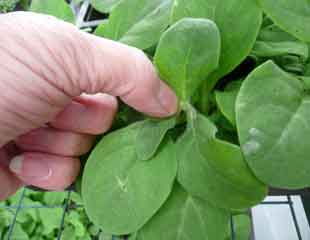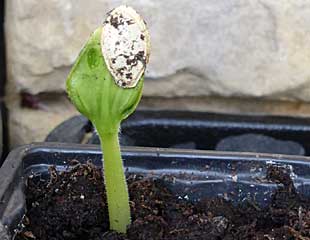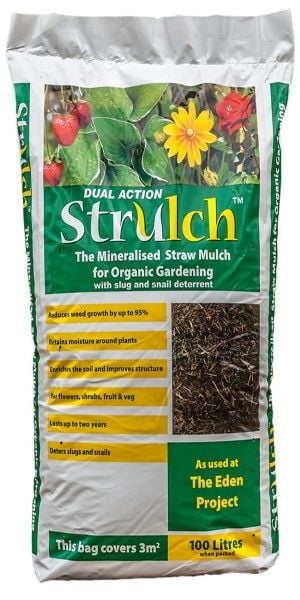Glossary of Gardening Terms
An easy guide to making sense of gardening terminology. On this page are clear explanations of everyday gardening terms so you can understand the difference between such much used terms as perennial, ericaceous, hardy and half hardy and many baffling words on plant labels and in gardening guides.
If you are a new gardener, you may may find this beginner's guide to gardening helpful and also 10 easy perennial plants to grow.
Hardy, Half Hardy and frost tender.
These terms refer to the plant's ability to withstand cold and winter.
Frost Hardy, or Hardy, denotes the plant which will withstand a typical British Winter.
Half Hardy is a less well-defined term but generally refers to a plant which will survive outside but will not survive a moderate frost or long spell of cold weather
Tender refers to a plant which should only be placed outside once the warm summer weather is fully established. This is a plant which will not withstand any degree of cold.
Full information about the hardiness scale
Perennial, Biennial, and Annual
Perennial is a plant which will live in the garden for more than two years, and usually for many years. The term refers to plants which put on growth in the spring, flower and die back over the autumn. Most of the common spring and summer flowering plants are perennial.
Biennial plants last for two years. In the first year they grow and develop, and in the second year flower and set seed. Foxgloves are a good example of Biennial plants.
Annual plants last for only one year. They seed, grow, become fully grown flower and die all in one year. Examples are our summer bedding plants such as Marigolds, Petunia, which we plant and grow over the summer.
It is also true to say that some plants would have greater longevity in a different climate, where they would become perennials.
Herbaceous
There are some technical, horticultural discussions about herbaceous. Essentially, it is a perennial plant which after flowering at the end of the growing season dies back. It dies back completely, so that in the winter there is just bare earth and when spring arrives fresh shoots push through and the plant goes through a complete cycle of growth and flowering over the summer.
Chelsea Chop and Pinching Out

Chelsea Chop is a term used to explain cutting back plants, usually perennials in or around late May. It's purpose is to make the plant more bushy, stop it becoming sprawling later in the season, and to vary it's flowering time. Detailed explanation How and When to do the Chelsea Chop and video guide.
Gardening guides often also refer to pinching out- commonly in relation to annual plants and this is also to make the plant more bushy. Pinching out is to nip out the growing point, which will make the plant throw out more shoots to become bushier.
Germination

Technically Germination is the time when the seed first sends out a seedling which occurs in the soil. The first we know of germination is, as in the image, when the seedling emerges out of the soil and becomes visible.
Germination usually requires a steady warmish temperature and a degree of moisture, and light,
When seedlings emerge, they are very delicate and any sudden changes in temperature or moisture can damage or kill the seedling; they need to be checked carefully until the seedling becomes study and grows into a small plant.
Soil Types
Sandy, Peat, Clay, Chalk and Silt
Soils, and planting conditions for plants, are often described in this way and generally it refers to the % of constituent in the soil. Each advantages and disadvantages as a growing medium and along with the acidity or alkalinity of a soil is important factor in which plants to grow, and which plants will thrive in your garden.
Chalk - a common garden soil type, it can be pale, stony, very free draining and reasonably fertile.
Silt- has good fertility and will hold moisture but tends to compact.
Sandy -is light and free draining but tends to lack nutrients and thus is relatively infertile
Peat - is usually rich in organic matter making it fertile soil, and water retentive
Clay - is heavy soil, which is usually slow draining and can be hard to work but high in nutrients.
Soil Acidity and Alkalinity - the pH level
This is relevant when gardening guides refer to a plant only suitable to acid or ericaceous soil, or preferring an alkaline soil. Soil has a measurable pH between 1-14, below 7 is acid, above is alkaline.
You can discover your soil pH by a testing kit, or take a look at your neighbours gardens. If acid loving shrubs, Rhododendrons, Camellia, Pieris and similar are thriving the soil is acid.
Mulch

Mulch is a layer spread onto the soil or around a particular plant. The purpose of a mulch is to keep the plant's roots protected in winter, cooler in summer and to retain moisture, which is why a mulch maybe spread around a particular plant. A mulch may also be spread over a whole border to suppress weeds.
Mulch such as composted bark is often spread over weed suppressing membrane to disguise it. Weed suppressing membrane is very effective, just not very attractive.
The best mulches are organic such as composted bark, compost, and leaf mould. An excellent commercial mulch is Strulch, which is an excellent all round mulch.
It is very good at suppressing weeds, light and easy to handle, and over time will decay down into the soil. It also looks tidy on a border.
All mulches are best applied, ideally, after weeding and when the soil is not frozen, or waterlogged.
Inorganic mulches are often used as part of the garden design, coloured slates and pebbles.
